Depression is one of the most prevalent mental disorders in the United States. Recent research estimated that on average 16.1 million American adults above the age of 18 years have gone through at least one major depressive episode.
This is equivalent to 6.7% of all adults in America.
In terms of its relationship with drug abuse and addiction, depression can adversely affect the process of recovery and healing for addicts.
Some of its effects may go unnoticed because of the great intertwining between suffering depression and being a substance addict or abuser.
If you or your loved one are on the journey to recovery from addiction, here’s everything you need to know about depression and drug abuse.
The Relationship Between Depression and Drug Abuse
Data from the US department of health and human services show that persons diagnosed with depression and anxiety disorders are about twice as likely to suffer also from a drug use disorder, whether abuse or dependence, compared to those without depression disorders.
This means that depression and drug abuse are related to a high level and are likely to affect a person’s recovery from addiction.
In most cases, depression and drug dependence happen as a dual diagnosis. This means that they are likely to affect an individual at the same time.
Depression is long episodes of sadness characterized by feelings of worthlessness and loss of hope. There are different levels of depression and varied symptoms of the same.
According to a 2014 National Survey on Drug Use and Health, 7.9 million people in the U.S experience both a mental disorder and substance use disorder simultaneously.
Once someone suffers an addiction, how do they get out of it? Are there challenges which depression causes that slow the process?
Keep reading to find out how depression affects recovery and why a drug addict should be mindful of their mental health during the recovery process.
How Depression Affects Drug Addiction Recovery
Majorly, you are likely to abuse drugs and even risk becoming an addict due to unstable mental health. Depression is a major determinant of whether you will result in drug dependency and how fast you are likely to heal out of addiction.
Here are some reasons why;
Depression Can Cause Addiction Relapses
For as long as your mind is not stable due to depression, you may not be able to make a concrete decision about drug abstinence and stick by it. If you have had been an addict, you are at a more risky state to relapse than a person who isn’t.
Depression makes it harder for you to grow out of addiction. This is because it robs off your joy and leaves you void. The endeavor to fill that void inside of you makes drug abuse relapse more likely to happen
Around 40% to 60% of people going through abuse-recovery are likely to relapse. The statistics are higher for people fighting depression and drug addiction at the same time
Depression May Be the Cause of the Addiction
Depression is sometimes the very reason why one suffers addiction or becomes dependent on certain drugs in the first place. Unless one is healed of the depression first, getting off the addiction will be harder.
The interdependence between these two conditions most of the time will need simultaneous healing. You may need to go through therapy to heal the depression as well as do drug addiction at the same time.
This, therefore, might slow the rate at which addiction will be treatable but it does not mean that one cannot recover.
Addiction and Depression are Both Mental Aspects
Depression and addiction both have one convergent point; they affect the brain.
You might be dependent on certain substances such as alcohol or opioids and once you are addicted it will take some work through your body and mind to heal it off. This is the same way depression also affects the brain.
Therefore, if you have depression, it means that your mind gets overwhelmed. This makes addiction recovery longer as depression makes it a little bit harder to deal with the addiction independently.
Depression Accelerates Addiction
Most people going through depression will result in alcohol or other drug uses to manage the situation. The more they use the drugs, the more likely they are to develop an addiction.
Therefore, addiction, in this case, is as a result of the depression. To heal addiction, you have to cure the depression first. Failure to do this causes the two conditions to become interdependent, and the addiction gets accelerated.
Depressed People May Resent Intervention and Rehabilitation
Depression brings feelings of:
- Hopelessness
- Resentment
- Feeling unworthy
- The lack of motivation to make oneself better
Therefore, a person suffering from both depression and drug addiction may not be necessarily motivated to fight the addiction. In any case, the depression may be as a result of the effects that the drugs have on their bodies.
They already resent themselves and have no motivation to make their lives better by fighting the addiction. Addiction and mental disorders caused by depression become the norm. Unless there is specific intervention for such an individual, they might never recover.
Prevalence of Addiction and Mental Disorders
Addiction and mental disorders are prevalent among Americans and mostly occur as dual diagnosis. The fact that over 16.1 million Americans have suffered depression at least once in their lifetime indicates how much of a menace the situation is.
A large number of people face the risk of addiction and total dependence on drugs. This is because most of the depressed people often use drugs to cope with the mental disorder.
Luckily, these two conditions are manageable. Medical treatment and therapy can free one from drug addiction and depression.
If your loved one is facing one or both of these conditions, seek help immediately. This will help them recover before they sink deeper into depression and substance abuse.
You Can Overcome Depression and Drug Addiction
Many Americans are faced with both the depression and drug abuse and do not know where to turn to. However, you or your loved one can overcome addiction and depression and lead a fulfilling life. This can be done by receiving proper medication assisted treatment for your addiction and speaking with trained clinical staff to ensure your recovery.
If you are going through addiction, all is not lost. Our online MAT program allows patients to not only receive their medication by mail, but also speak with trained clinical staff via video and chat.


